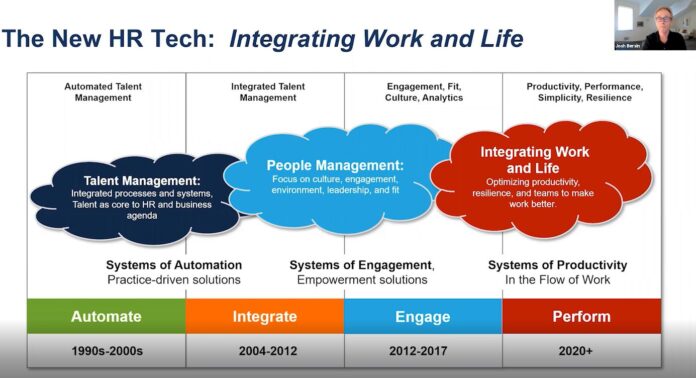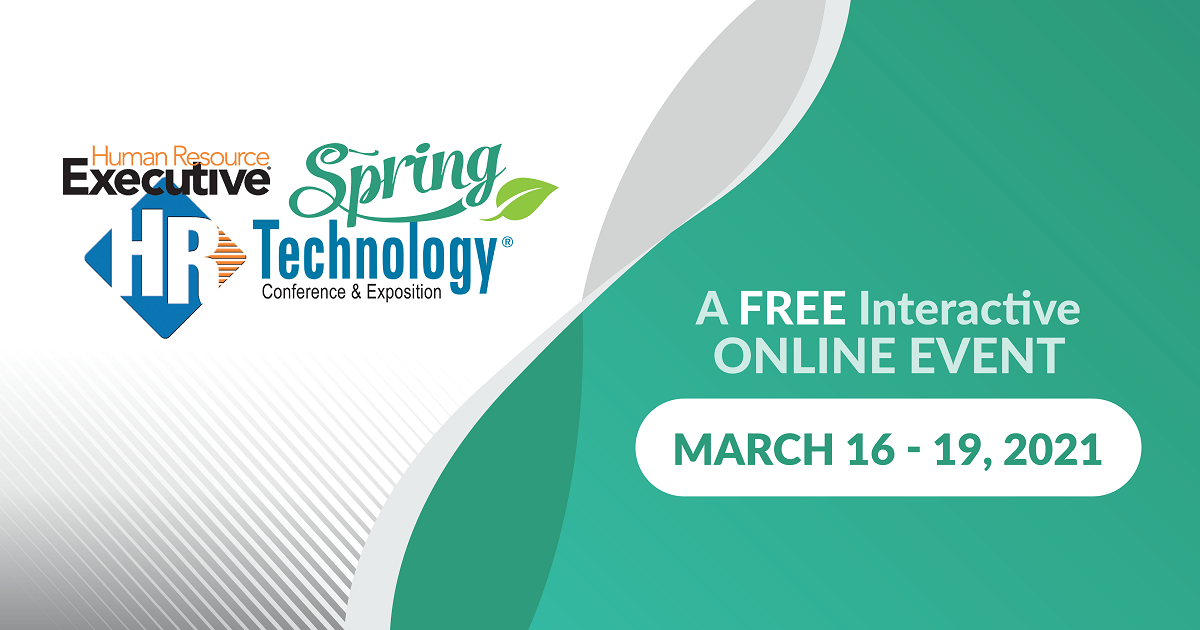After a year of massive disruption, the HR tech community comes together this week–virtually–to explore where technology can help HR go from here. The Spring HR Technology Conference & Exposition® features nearly 200 speakers and more than 160 sessions, covering the diverse topics HR leaders are tasked with tackling today.
The second virtual and free HR Tech conference, complete with a state-of-the-art virtual HR tech marketplace featuring hundreds of vendors, begins Tuesday and runs for four days, starting with industry analyst Josh Bersin at 11 a.m. Tuesday and wrapping up with a session called “Six Emerging HR Tech Startups to Put on Your Radar Now–HR Technology Pitchfest Preview.”

“HR technology has been elevated beyond business-critical infrastructure, beyond HR, payroll and benefits,” says conference chair Jeanne Achille, who also chairs the Women in HR Tech Summit at HR Tech each fall. “During what turned out to be a redefining year for all organizations, it’s HR technology that helped hold teams together, develop new leaders and provide a path forward. It consistently demonstrated how an HR tech investment intended for one function could deliver numerous outcomes. As we learn the new order of business, we’re excited to feature keynote presentations from those who are shaping the next generation of HR technology.”
For more, register for the conference here, sign up for HRE‘s HR Tech and other newsletters here and bookmark this site for all the latest coverage.
Below is a brief look at five themes you’ll hear throughout the conference.
- The HR technology market will be changing fast as the economy and the nation emerge from the pandemic. Analyst and keynoter Josh Bersin predicted the coming “red-hot labor market” is primed to drive up demand for internal talent marketplace tools, as well as emphasize the need for employers to rely on listening and learning solutions to enhance employee experience. The wellbeing corner of the tech market will also see significant growth, although Bersin urged employers not to over-invest in too many wellbeing tools–but rather to ensure the ones you do have are part of a comprehensive wellbeing strategy.
- Diversity, inclusion, equality and belonging are finally on HR agendas to stay. D&I experts Torin Ellis and Jackye Clayton, who both gave keynote addresses, also both noted its relevance for organizations moving forward, including how much it will cost the U.S. economy to continue with racial inequality in the workplace ($5 trillion, Ellis said). Clayton warned about the dangers of hiring for fit and pointed out six common mistakes to avoid, including only seeking Black talent at HBCUs and hanging on to problem employees, if you’re working to build a diverse organization.
- Since everyone in your organization is a leader, how should HR be thinking about and developing the frontline managers and others? Not only from a cost perspective, but that’s an important framework, analyst and keynoter Katy Tynan of Forrester said. Boosting engagement, that all-important metric measuring how connected employees are to the organization and to their work, starts with frontline managers. Disengagement is pricey so consider spending more to develop these often-overlooked leaders to help retain key talent.
- You can only support a remote or hybrid setup by first becoming a true digital workplace. Employers looking at remote or hybrid workplaces for the long-term need to build them on a “digital backbone,” said ServiceNow’s Melanie Lougee, who advised employers to focus on tools that allow them to maintain connection, modernize the employer-employee relationship and support productivity from anywhere. Jesper Bendtsen of Thompson Reuters also cautioned HR tech buyers to frequently take the pulse of their workforce on whether their digital tools are effectively supporting new ways of working–and to avoid over-investing in too many new solutions at once.
- It’s “back to basics” when it comes to caring about and connecting with your employees. While technology will be essential to supporting the shifts of the post-pandemic world of work, HR leaders need to pair their tech tools with a commitment to empathetic leadership. Jessica Lee, HR leader at Marriott, said in a keynote that–amid furloughs, the challenges of remote work and rising awareness of racial inequality in the last year–she found transparency and compassion to be key in connecting with employees and making them feel supported. And as 2021 is primed to continue to be a year of changes, this “back-to-basics” approach can help HR keep employees at the forefront of their business strategy.





